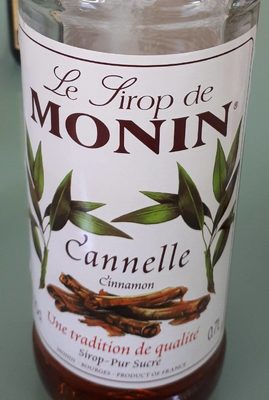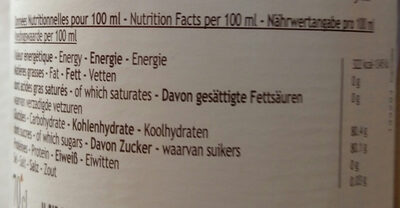Monin Sirop Cannelle - 70 cl
This product page is not complete. You can help to complete it by editing it and adding more data from the photos we have, or by taking more photos using the app for Android or iPhone/iPad. Thank you!
×
Barcode: 3052910056476 (EAN / EAN-13)
Quantity: 70 cl
Brands: Monin
Categories: Beverages, Syrups, Flavoured syrups, fr:Sirops de cannelle
Countries where sold: France
Matching with your preferences
Environment
Carbon footprint
Packaging
Transportation
Report a problem
Data sources
Product added on by kiliweb
Last edit of product page on by ecoscore-impact-estimator.
Product page also edited by citorva, openfoodfacts-contributors, segundo, teolemon, yuka.ZklFWUNvSmMrcUFUeFBFRC9FdnExOUZTK0lLNUJtS29JdTB6SUE9PQ.
If the data is incomplete or incorrect, you can complete or correct it by editing this page.








